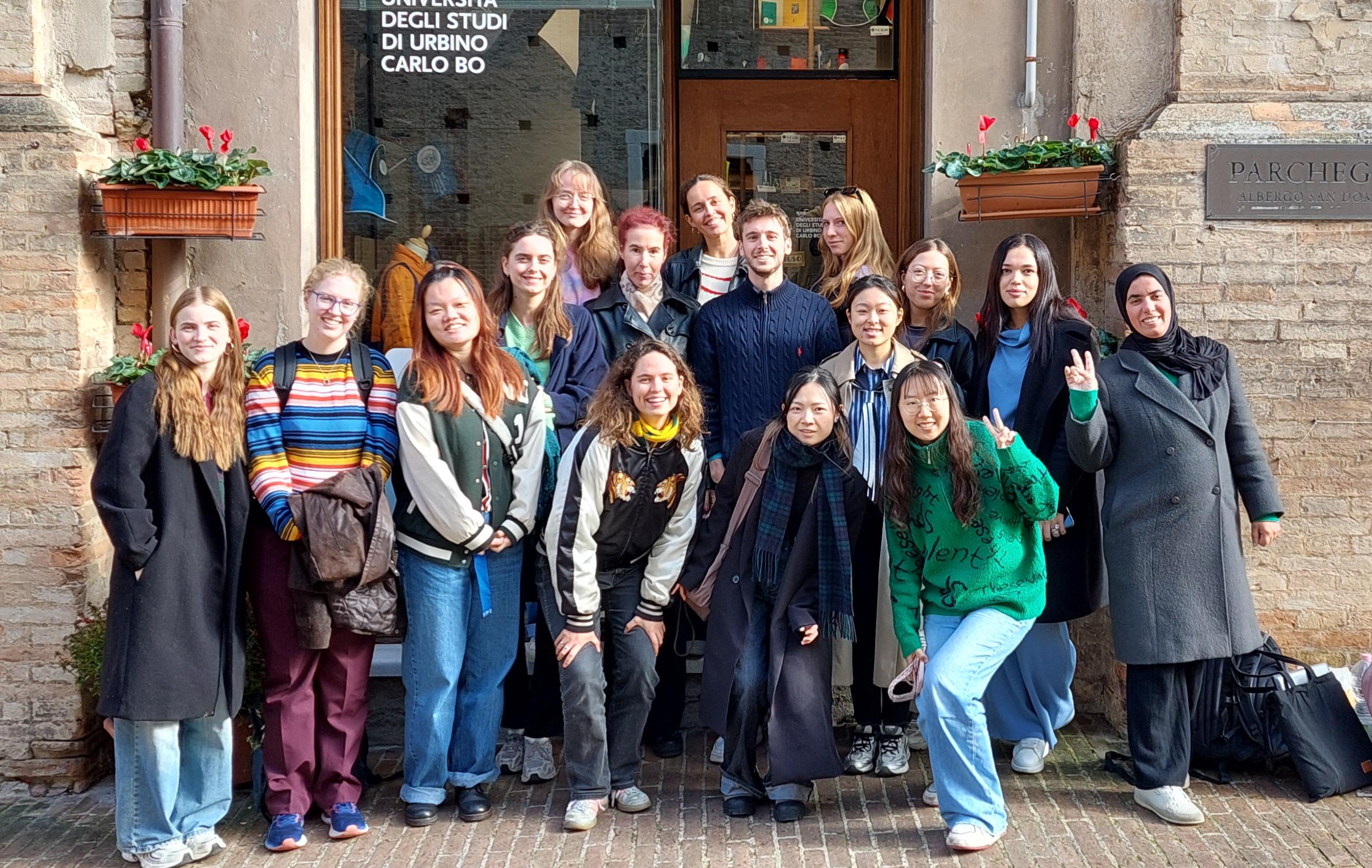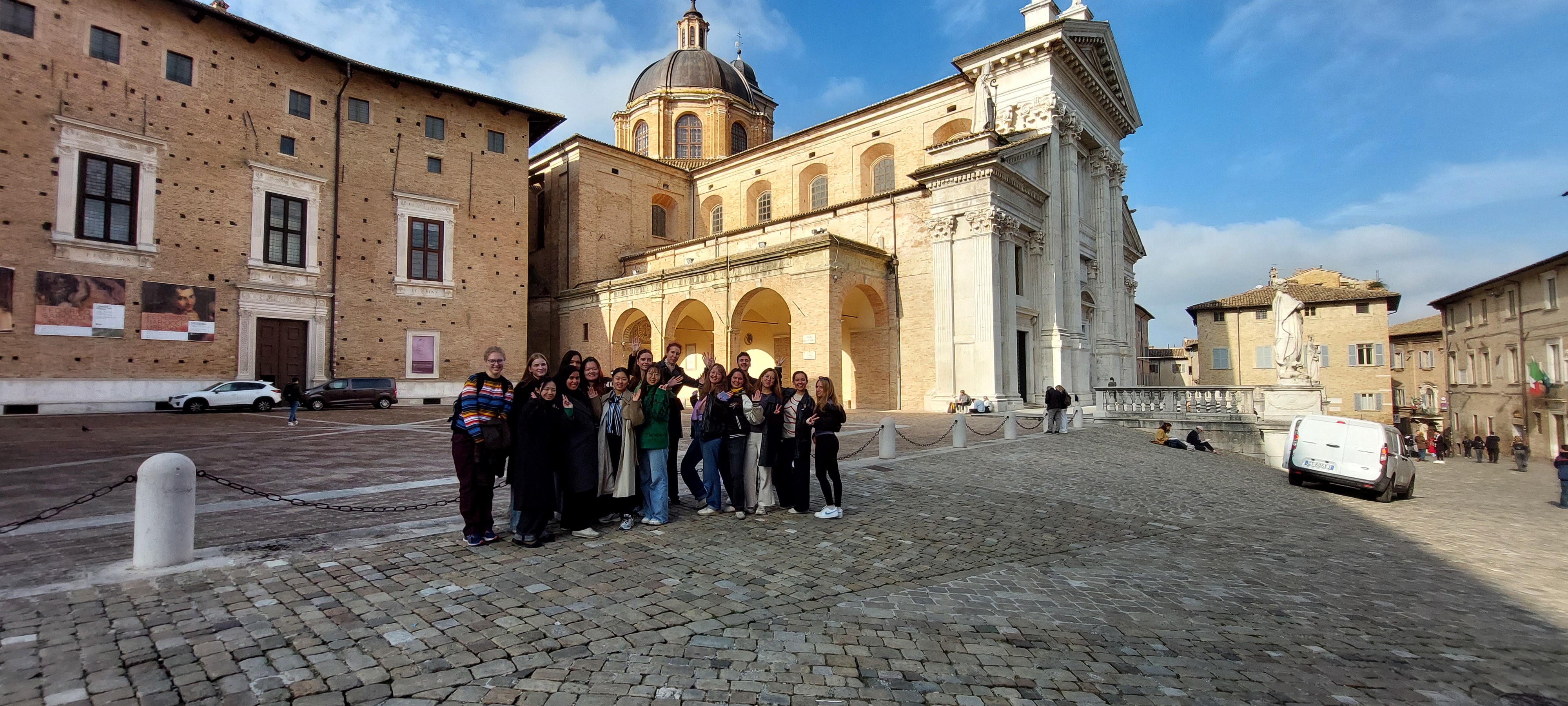Professor Anastassia Zabrodskaja Leads EMICC course on Linguistic Landscape
From November 5 to 7, 2024, Professor Anastassia Zabrodskaja led an immersive 18-hour course on "Linguistic Landscape" at the Università degli Studi di Urbino Carlo Bo, Italy.

This intensive course, conducted under the Eurocampus Urbino 2024 program, is part of the European Masters in Intercultural Communication (EMICC), a prestigious initiative that connects nine European universities in a collaborative effort to develop advanced intercultural communication skills.
In Professor Zabrodskaja’s course, students explored how linguistic landscapes— the visual representation of languages in public spaces—reflect cultural diversity and social dynamics. The course covered the latest theoretical perspectives and methodological advancements in Linguistic Landscape Studies, emphasizing their role in enhancing our understanding of intercultural communication. Through Linguistic Landscape, students gained insights into how languages and linguistic forms shape and influence human interactions within shared spaces.
A core component of the course was hands-on mini-ethnographic fieldwork, enabling students to collect and analyze data from real-world settings. Participants observed and documented multilingual signage and public language displays, analyzing how different languages coexist and interact within specific geographic spaces. This practical experience allowed students to apply theoretical concepts such as "top-down" and "bottom-up" language use, linguistic ideology, and sociolinguistics of globalization, fostering a deeper comprehension of how language diversity plays out in multicultural contexts.

Students also conducted brief ethnographic interviews with local residents, such as shop assistants and information staff, to understand the languages they use daily, the language patterns they follow, and the training they receive to meet communicative needs in their professional environments. These interactions highlighted the complex, often "truncated multilingualism" and "super-diversity" that characterizes modern public spaces.
The final session of the course brought students together to discuss their fieldwork findings in relation to the theoretical frameworks they had studied. By examining linguistic landscapes through both theoretical and empirical lenses, students were equipped to critically assess the role of language in shaping intercultural encounters.
Professor Zabrodskaja’s course not only provided students with a foundational understanding of Linguistic Landscapes but also demonstrated its relevance to intercultural communication research and practice, reflecting the EMICC program’s Eurocampus mission to cultivate sophisticated, culturally informed perspectives among Europe’s future intercultural communication professionals. Professor Anastassia Zabrodskaja taught in the EMICC program as part of the Erasmus+ exchange.

The text is authored by Dr. Anastassia Zabrodskaja, who is a Professor of Intercultural Communication, the Head of the Master’s Program in Communication Management at Tallinn University Baltic Film, Media and Arts School, and the Executive Director of the European Masters in Intercultural Communication (EMICC) teaching and research network.

